7,8-Dihydroxyflavone
7,8-DHF is a natural flavonoid which can reach the brain and activate a receptor (TrkB) that promotes neuronal growth. Some animal evidence suggests that 7,8-DHF may have some cognitive and motor benefits and may be nootropic, but no human evidence for these claims exists to date.
7,8-Dihydroxyflavone is most often used for
Last Updated:November 17, 2022
7,8-dihydroxyflavone (7,8-DHF) is a synthetic flavonoid that was initially discovered in a study screening for small molecules that could activate a particular receptor known as tropomyosin-related kinase B (TrkB), because the peptide produced in the human body that acts on this receptor, called brain derived neurotrophic factor (BDNF), could not be used due to poor absorption into the brain. 7,8-DHF was found to be a potent mimic of BDNF able to act on TrkB in a similar manner. This means that 7,8-DHF could theoretically cause similar effects as BDNF in the brain, and in theory be more therapeutically useful due to its better absorption and ability to cross the blood-brain barrier.
When the TrkB receptor is activated, neurons tend to experience growth and protective effects. The growth tends to affect the dendrites of the neuron which reach out into the synapse to communicate with subsequent neurons, and 7,8-DHF has shown an ability to promote the growth of these dendrites into the synapse to help restore communication between neurons in animal models of cognitive decline (Alzheimer's and aging being researched). Some other supplements such as bacopa monnieri and polygala tenuifolia tend to work via activating this receptor via releasing BDNF in the brain.
There is a possible nootropic use of this flavonoid in otherwise healthy subjects, but the cognitive benefits seen in cognitively unwell rodents may not correlate well to healthy subjects. The evidence to support its benefits in cognitive enhancement in healthy rodents is mixed, and no human evidence exists at all.
Due to 7,8-DHF being a simple and effective activator of TrkB which can cross the blood-brain barrier, it will likely continue being researched for its cognitive effects.
- 7 8-DHF
- Tropoflavin
There are currently no human studies on 7,8-DHF to take human doses from, with all estimates being mathematically approximated from rodent research. The majority of rodent research does use intravenous injections however, with limited studies using oral ingestion.
Oral ingestion does appear to have effects, with rat studies noting:
- 5mg/kg being effective in the cognitively unwell mouse (chronic usage)
- 10mg/kg being effective in the cognitively well rat (subchronic use)
- 30mg/kg in the mouse being acutely effective
This is approximately 1mg/kg for subchronic or chronic usage in humans, with the acute dose correlating to approximately 2.5mg/kg.
🚧 Under Renovation 🚧
The information in this section is slated for renovation — it will soon be transformed into a more usable (and readable!) form in the coming months. As such, the text in this section may be out of date and not up to Examine’s current standards for writing style.




